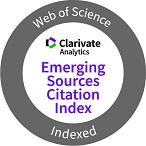CALIDAD TOTAL: SOLUCIÓN EMPRESARIAL
DOI:
https://doi.org/10.46631/jefas.1992.n1.02Keywords:
Total quality, Japanese management, decision making, innovationAbstract
It presents the fundamentals of the total quality strategy, in the understanding of how beneficial the implementation of this strategy is by generating valuable effects on the entire organization. It summarizes the modern concepts used by Japanese companies in administration, influenced by three North Americans: Deming, Juran and Crosby, and shows the evolution of thinking about quality based on the contribution of these authors. The central part of the article is dedicated to the philosophy of Edward Deming, the highest exponent of the modern concept of quality, for which the concepts developed by this author are explained: the fourteen points, the seven deadly diseases, the obstacles to good management and the importance of the use of graphics to objectively represent the information required for decision making. The article encourages innovation in business management, warning senior management about the traditional myopia manifested in conservative management and making them see the favorable effects that the modern concept of quality would have on their organization.
Downloads
References
FEIGENBAUM, Armand, Control total de la calidad, CECSA, 1970.
GITLOW, Howard y Shelly GITLOW, Cómo mejorar la calidad y la productividad con el método Deming, Norma, 1989.
MINTZBERG, Henry, On management, Free Press, 1989.
SCHONBERGER, Richard, Nine hidden lessons on manufacturing, Free Press, 1982.
WALTON, Mary, The Deming management method, Perigee Books, 1986.
Downloads
Published
How to Cite
Issue
Section
License
Copyright (c) 2021 Journal of Economics, Finance and Administrative Science

This work is licensed under a Creative Commons Attribution 4.0 International License.











